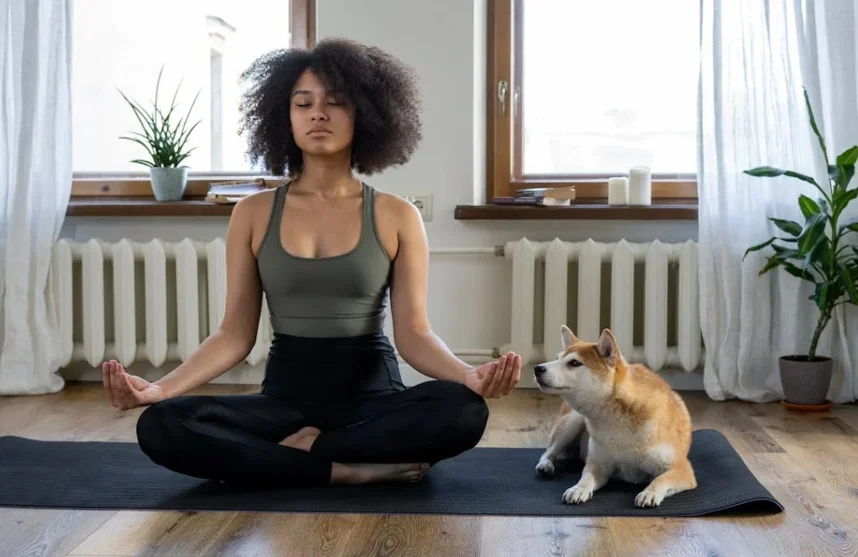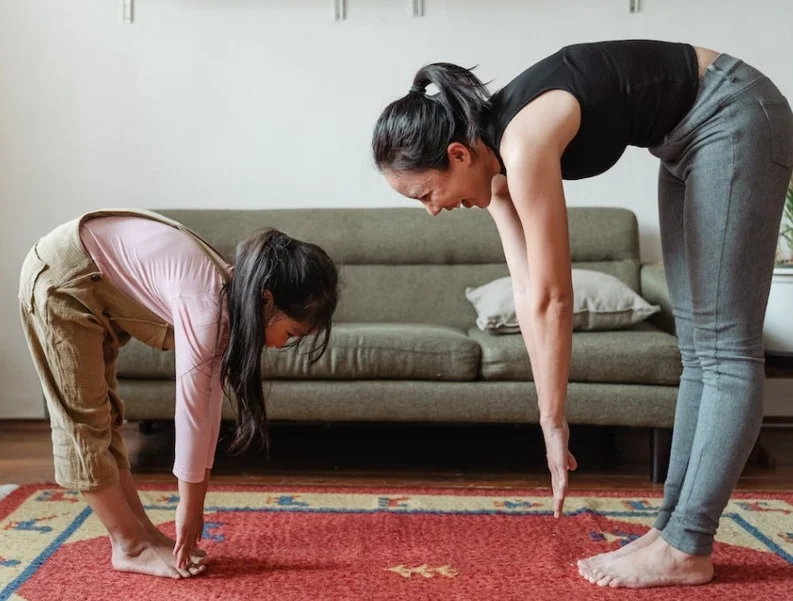If you’re reading this, you’re probably familiar with the negative effects of stress on the mind and body. Perhaps you’ve even experienced these effects firsthand.
In this post, I’ll skip lengthy explanations about the toll stress takes on the body and instead focus on effective ways to unwind after a stressful day. Adding these practices into your daily routine can bring about a healthy balance in your life.
Now, let’s explore some simple but powerful ways to de-stress and relax, especially after a particularly hectic day.
1. Disconnect and Recharge

Carving out time daily to disconnect from technology is an effective way to unwind after a long, stressful day. But beyond taking a break from digital connectivity, it is equally important to recharge your mind and body.
Consider the following suggestions to help you unwind and replenish your energy.
Turn Off Your Digital Devices
Once your work day is over, turn off your tablet or computer, and disable email alerts. Make this a habit to improve your work-life balance.
Staying off your digital devices reduces the likelihood of working beyond your work hours.
And even if you are unemployed or spend most of your time at home, disconnecting from your phone every now and then gives your brain and eyes a much-needed break from screens.
Read a Good Book
Ease off work-related tension with a good book. Reading provides a temporary escape from everyday stress and can greatly improve your memory and stimulate creative thinking.
Moreover, when you develop the habit of reading after a day’s work, your body and mind naturally shift gears into a more relaxed state each time you pick up a book after work. In other words, de-stressing and relaxing becomes easier when reading becomes a ritual or routine.
Take a Warm Bath or Shower
Adding body scan techniques to your relaxation routine might not appeal to you, but almost everyone enjoys indulging in a warm bath or shower. The reason for this is not far-fetched: a warm bath relaxes tense muscles, soothes aches, and triggers a relaxation response in the body.
The next time you experience a particularly stressful day, give yourself some tender loving care by immersing yourself in a warm bath. While a hot or warm shower may seem like a mundane activity, the self-care activity can improve your sleep quality, help you become more aware of the present moment, and enhance your emotional well-being.
2. Mindful Reflection and Relaxation

One of the best ways to de-stress is to engage in practices that promote inner peace. Whether you’re looking to calm your nerves after a hectic day at work or to center yourself after all the back and forth with your difficult teenager, trying one or more of these mindful reflection and relaxation activities can be helpful.
Write About Your Day
Grab a pen and a notebook and express what you feel about your day in writing. It’s up to you to include whatever details you want in your journal, but I suggest focusing more on your positive experiences throughout the day.
If you have any difficult issues you would like to deal with, pen them down as a way to process and release them. However, avoid using your journal as a place to store dark thoughts.
Journaling is a great way to discover your stress triggers. By writing about the different scenarios where you experienced more stress, you can easily identify and avoid specific situations, events, or people that may stress you out.
Do Some Mindfulness Activities
If you’ve had a particularly stressful day, it’s easy to become vulnerable to negative thoughts because you’re not in the best frame of mind to focus or think clearly.
This is where practicing mindfulness activity comes into the picture. Mindfulness ― being present in your moments ― can prevent dwelling on problems or looking at situations from a negative aspect.
Inhabiting your moments increases awareness of your thoughts and feelings, and that’s key to calming the mind and promoting relaxation.
Here are some ways to practice mindfulness:
- Immerse yourself in the experience of the present moment, even if it is just for a few minutes. Intentionally notice the sights, sounds, tastes, smells, and physical sensations around you.
- Deliberately slow down your breathing for a few minutes. Take slow, long breaths and focus on the sensations of the air going in and out of your lungs. Slowing your breath and deep breathing can calm your nerves and reduce stress.
- Set aside some minutes every day to meditate. Consider guided meditation if you’re new to the practice.
- Eat slowly, noticing and savoring the flavors and textures of the food. Turning off your phone, TV, and other devices or staying away from them while eating can help you pay more attention and enjoy the process of eating.
Practice Gratitude
Whenever you feel worked up, take some time to intentionally shift your mind to a few pluses in your life. Do this consistently; before long, you’ll have developed a habit of expressing gratitude, even during challenging times.
A recent study suggests that giving thanks can increase positivity, making you feel happier and less stressed. And while practicing gratitude when you are stressed can be a bit challenging, doing so can help shift your attention from stressors.
Here are a few ways to make gratitude a part of your daily routine:
- Count your blessings: As the popular hymn advises, “Count your many blessings, name them one by one.” Every day, reflect on the things you’ve got going for you and be grateful for them. While you can do this at any time of the day, counting your blessings in the evening, right before you retire for the day, can help you close the day on a positive note.
- Keep a gratitude journal: Develop the habit of writing down the things you’re grateful for in a journal. It doesn’t matter whether you write one or 10 things, and it definitely doesn’t matter whether it’s something big or small; the most important thing is feeling truly grateful for the blessings in your life.
- Send thank-you notes: Whether it’s an email or a handwritten note, expressing gratitude to those in your life can nurture your relationship with them. The more happy relationships you have, the less relationship-related stress you experience.
3. Engage in Physical and Creative Activities

Provide an outlet for stress relief by engaging in physical and creative activities. But does it make sense to do physical activities when you’re already tired or worked up from a stressful day?
No doubt, physical activity may appear less appealing if you’re already exhausted physically or mentally. However, these activities have a way of boosting your mood and promoting calmness.
I recommend doing the following activities whenever you are stressed from a hectic day.
Do Some Exercises
When daily stress comes knocking, counter it by moving your body. Remember to choose an exercise or physical activity that suits your fitness level and that you enjoy.
While high-impact exercises may work for some, they may increase fatigue because they are physically demanding. Consider moderate or low-impact exercises like yoga, tai chi, and pilates. If you’re feeling up to it, you can dance or go for a walk in nature.
Do a Creative Hobby
Whether you enjoy painting, cooking, gardening, or playing an instrument, doing a creative activity can be therapeutic and can help when it comes to managing stress.
These activities provide an outlet to release worrisome thoughts and negative energy you may have picked up during those stressful days. Besides, hobbies are a great way to escape from daily stressors, allowing you to mentally take a break from your fears and worries, even if it is temporary.
Listen to Soothing Music
There’s something about music that elevates the mood and leaves you feeling better. This is especially true if you listen to soothing music.
Connect with the lyrics, rhythm, and melody of the soothing music to alleviate stress and help you relax.
If you have a hard time falling asleep at night, perhaps because you’re too stressed out, listening to calm music can help your body relax and improve your sleep quality. Remember to choose a style of music that deeply resonates with you.
Final Thoughts
Make it a habit to de-stress as often as possible; doing so improves your overall well-being. Keep in mind that relaxing can be difficult if you feel unproductive at the end of the day.
In other words, putting in your best in your activities throughout the day can help you feel more fulfilled. And you’re less likely to judge yourself harshly when relaxing after a stressful day if you were actually productive.
However, if you have trouble feeling adequate at work, check out this guide to learn how to turn things around.


![7 Best Apps To Improve Self-Esteem : [How to Make 2023 Amazing] 6 7 Best Apps To Improve Self-Esteem [2022]](https://thinkpositivecheck.com/wp-content/uploads/2022/02/7-Best-Apps-To-Improve-Self-Esteem-2022-1024x576.png)

